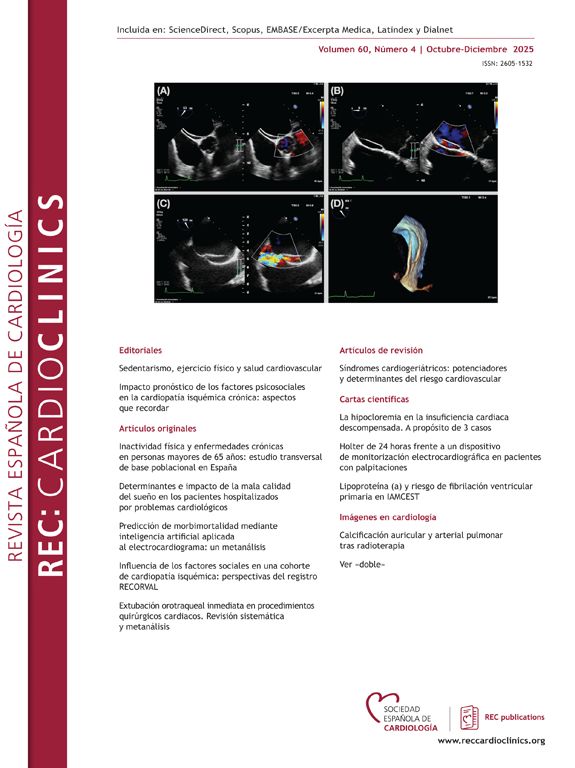A 39-year-old woman underwent biatrial orthotopic heart transplantation due to an idiopathic restrictive cardiomyopathy. She remained free from rejection or cardiac allograft vasculopathy, but a severe tricuspid regurgitation (TR) became clinically significant in the follow-up.
Considering that surgical procedures are associated with increased mortality in post-transplant recipients, along with her youth and a potential re-do heart transplantation, transcatheter repair was considered. A transesophageal echocardiography showed a type I 3-leaflet configuration and anterior leaflet flail with severe degenerative TR (flail height 3mm, contracta vein 12mm, effective regurgitant orifice 0.77cm2, without gap), without pulmonary hypertension. Under general anesthesia, two TriClips (Abbott, United States) combining longer-XT and shorter-NT devices were placed grasping anterior-to-septal leaflets, working with biplane transesophageal echocardiography images in inflow-outflow and long axis-grasping view planes (Fig. 1A). This resulted into significant TR reduction from grade III/V to I/V without stenosis (mean gradient: 1mmHg) (Fig. 1B, C). The patient was discharged the following day.
TR after orthotopic heart transplantation is not uncommon. TriClip represents a transcatheter edge-to-edge repair system for TR that leverages the same clip-based technology as MitraClip but has a differentiated delivery system that facilitates maneuvers in right-side chambers. TriClip received Conformité Européenne (CE) mark in 2020 based on positive data of the NT system in the Triluminate study, although the XT system is currently the widest used device for TR patients.
To our knowledge, this is the first report of TriClip implantation in a transplanted heart, opening a new venue for this challenging subset of patients.
FundingA. Maestro Benedicto received a Río Hortega grant (CM20/00220) from the Instituto de Salud Carlos III.
Authors’ contributionsWe confirm that all authors contributed to manuscript revision, read, and approved the submitted version.
Conflicts of interestC.H.P. Li has received a proctoring contract, speaker fees and travel support from Abbott. Rest of authors have no conflict of interest to declare.











